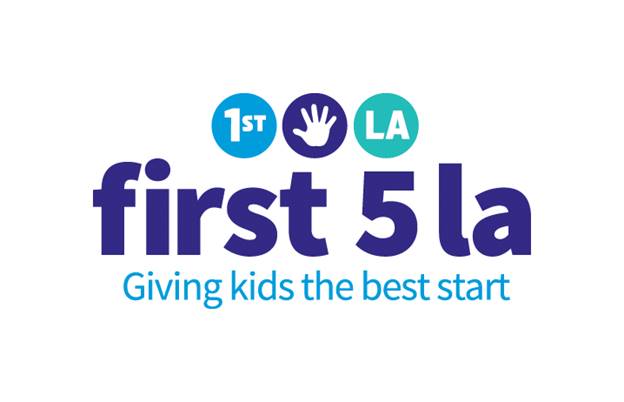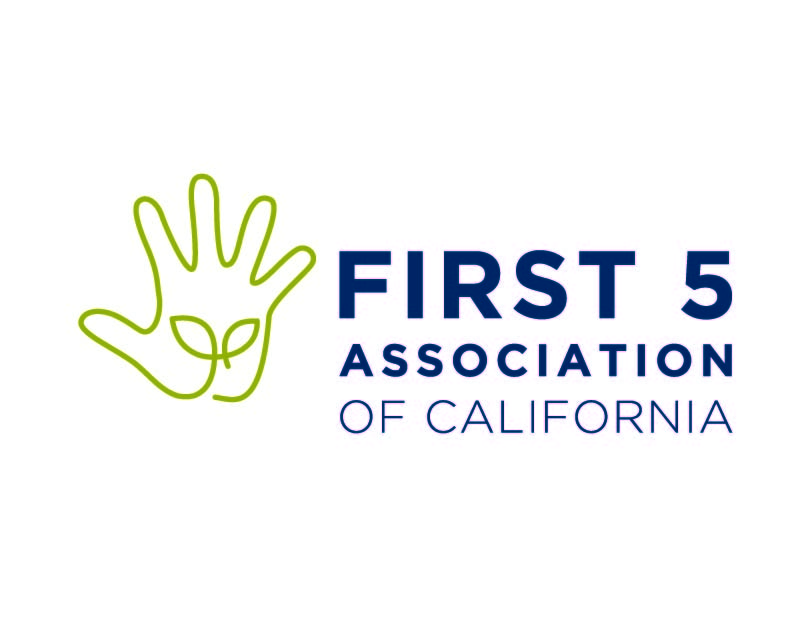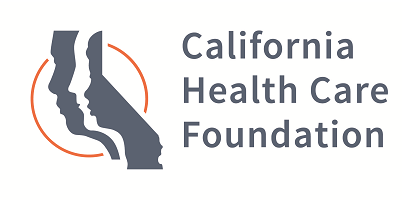
Policy Insights, the Budget Center’s annual conference, is the premier event for advocates, policymakers, researchers, and other leaders working to improve the lives of low- and middle-income Californians. The conference fosters a discussion on expanding economic opportunity for all Californians.
The following is the agenda and schedule for Policy Insights 2018, which was held on March 22 at the Sacramento Convention Center and attended by 300 people from around the state. This page includes links to presentations and handouts from the conference sessions as noted, as well as video recordings of the three plenary sessions.
AGENDA
8:30-8:50 Registration and Continental Breakfast
9:00-9:15 Welcome and Overview
Introductory Remarks on the Landscape for Continued Policy Advances in California
- Chris Hoene, Executive Director, California Budget & Policy Center
9:15-10:30 Morning Plenary
Keynote: What Federal Budget and Policy Proposals Could Mean for California
One of our nation’s preeminent experts on how public policies can broaden economic opportunity discusses current and anticipated federal proposals, their implications for California, and the potential impact on future state policy choices and debates.
-
- Jared Bernstein, Senior Fellow, Center on Budget and Policy Priorities | View Slides
- Moderator: John Myers, Sacramento Bureau Chief, Los Angeles Times
10:45-12:00 Morning Workshops (see “Workshops” below)
12:15-1:45 Luncheon Plenary
Introductory Remarks
- Paul Rosenstiel, Retired Managing Director, Public Finance Department, Stifel, Nicolaus & Company and Board Chair, California Budget & Policy Center
California Budget Prospects for 2018-19 and Beyond
The chairs of the Senate and Assembly Budget Committees in the California Legislature discuss current state budget and policy proposals and the issues these leaders expect will shape this year’s budget deliberations.
-
- Senator Holly J. Mitchell, Chair, Senate Budget and Fiscal Review Committee
- Assemblymember Phil Ting, Chair, Assembly Committee on Budget
- Moderator: Marisa Lagos, Reporter, KQED
2:00-3:15 Afternoon Workshops (see “Workshops” below)
3:30-4:30 Afternoon Plenary
Crafting a New Economic Agenda for California
Although our state has seen substantial economic growth in recent decades, a changing labor market and other fundamental shifts are leaving many Californians behind. Experts from across various sectors will discuss policy pathways that California could pursue in advancing an economic agenda that improves outcomes for workers, families, and communities.
-
- Natalie Foster, Co-Chair, Economic Security Project
- Alma Hernández, Executive Director, Service Employees International Union California
- Manuel Pastor, Director, USC Program for Environmental and Regional Equity (PERE) and USC Center for the Study of Immigrant Integration (CSII)
- Moderator: Chris Hoene, Executive Director, California Budget & Policy Center
4:30-6:00 Reception
Workshops
10:45-12:00 Morning Workshops
Bringing It All Back Home: Strategies for Talking About the Stakes of Federal Policy Threats
Enacted and emerging federal proposals could have a tremendous impact on California–its economy, its fiscal standing, and its regions and communities. Yet even with so much at stake, it can sometimes be a challenge to talk about federal risks in ways that resonate and connect with key stakeholders and other target audiences. In this workshop, panelists who have been engaged in efforts to shed light on potentially damaging federal policy proposals share their strategies and discuss how to approach translating the often wonky details of these proposals into real-world terms that build awareness and foster action.
- Jiggy Athilingam, State and Local Policy Manager, Indivisible
- Steven Bliss, Director of Strategic Communications, California Budget & Policy Center
- Marisa Lagos, California Politics and Government Reporter, KQED News
- Jon Rodney, Communications Director, California Immigrant Policy Center
Making Ends Meet: What Policies Do We Need to Address California’s High Cost of Living?
California’s economy has been growing and unemployment is low – yet many Californians are still struggling to afford the costs of housing, child care, health care, and other basic necessities. In fact, despite the state’s strong economy, California has the highest poverty rate of the 50 states when accounting for the cost of living. What are the factors that make it increasingly difficult for families to make ends meet, and what policies are needed to make a difference? This workshop will examine the basic cost of living in different parts of California, followed by a wide-ranging discussion of policies that can help households meet their basic needs and achieve economic security – by addressing housing affordability, income security, asset building, and other promising policy pathways.
- Elena Chavez Quezada, Senior Program Officer, Economic Security, Walter & Elise Haas Fund
- Sara Kimberlin, Senior Policy Analyst, California Budget & Policy Center | View Slides
- Pete Manzo, President and CEO, United Ways of California | View Slides
- Matt Schwartz, President and CEO, California Housing Partnership Corporation | View Slides View High Cost of Living Handout View State Report Handout
Piloting Home Visiting in California: Why It’s Important and How It Works
The early childhood years are the foundation for lifelong well-being and healthy development. For children living in poverty, disproportionate exposure to negative experiences compromises this development. However, research indicates that stable and supportive relationships with adults can mitigate the effects of adverse life events. Home visiting programs offer parenting skills development and other resources to new and expecting parents, particularly those who are at-risk. Governor Brown’s 2018-19 budget proposal includes a new voluntary home visiting initiative for families in the CalWORKs program with the goal of encouraging healthy child development, promoting positive parenting, and preparing parents for work. This workshop will feature leading researchers and advocates who will discuss what this pilot could mean for CalWORKs families. Panelists will discuss the evidence base for different home visiting models, explore those currently being used in California, and identify both the challenges and opportunities for providing home visiting services within the CalWORKs framework.
- Peter Barth, Director, Public Policy and Government Affairs, First 5 LA | View Handout
- Frank J. Mecca, Executive Director, County Welfare Directors Association of California
- Charles Michalopoulos, Chief Economist, MDRC
- Michele Stillwell-Parvensky, Director, Policy and Communications, Children’s Defense Fund─California | View Slides
- Moderator: Esi Hutchful, State Policy Fellow, California Budget & Policy Center
Policies That Advance Gender Justice: Boosting Women’s Well-Being Through Economic Security, Employment, and Earnings
When women thrive, their families and communities prosper. Yet despite decades of progress, women still face persistent disparities on a range of issues, such as earnings and assets, caregiving responsibilities, and personal safety in the workplace. These disparities are particularly pronounced for women of color. This panel conversation will focus on key issues affecting women, their families, and their work, and actions policymakers can take to improve women’s economic security, employment, and earnings.
- Mary Ignatius, Statewide Organizer, Parent Voices CA | View Handout
- Heather McCulloch, Director, Closing the Women’s Wealth Gap Initiative | View Handout
- Kristin Schumacher, Senior Policy Analyst, California Budget & Policy Center | View Slides View Women’s Well-Being Index Overview Handout View Poverty Indicator Handout 2 View Sacramento County Handout
- Jessica Stender, Senior Counsel, Workplace Justice and Public Policy, Equal Rights Advocates
Transforming California’s Show-Me-the-Money Bail System
On any given day, thousands of people who have been accused – but not convicted – of crimes sit in California’s jails because they can’t afford to post bail. While Californians with access to cash or property do have the option of buying their way out of jail by purchasing a bail bond, this bond debt puts many low- and moderate-income families in financial peril. Moreover, by emphasizing wealth over risk, the bail system fails to consider whether an individual can safely be released following an arrest. An alternative approach to pretrial justice – which is currently being debated in the state Legislature – makes risk, not wealth, the key factor in determining who should be detained in jail pending trial. This workshop will highlight current efforts, both at the state and local levels, to transform California’s broken bail system as well as the benefits of adopting a new approach to pretrial justice that is more equitable and effective – and that better reflects California’s values.
- Mica Doctoroff, Legislative Attorney, ACLU of California Center for Advocacy and Policy
- Peter Espinoza, Director, Los Angeles County Office of Diversion and Reentry
- Scott Graves, Director of Research, California Budget & Policy Center
- Raj Jayadev, Coordinator, Silicon Valley De-Bug
- Krista Niemczyk, Public Policy Manager, California Partnership to End Domestic Violence
2:00-3:15 Afternoon Workshops
Building on Health Care Reform: Next Steps in State Health Policy
California has made significant strides in expanding access to health care coverage due in large part to the federal Affordable Care Act (ACA). Enrollment in Medi-Cal has jumped by more than 5 million – to 13.5 million – in recent years. Meanwhile, another 1.3 million Californians are enrolled in plans offered through Covered California, with almost 9 in 10 receiving federal subsidies. With these gains, California’s uninsured rate has dropped from nearly 19% in 2010 to less than 7%, and the ACA remains strong today despite recent federal threats. Even so, more can be done at the state level to ensure that all Californians have access to care and that coverage is affordable to everyone. This panel will explore new directions in state health policy that aim to further expand coverage and address the overall cost and quality of care while at the same time taking tangible steps to broader health system reforms.
- Michelle Cabrera, Healthcare Director, SEIU State Council
- Laurel Lucia, Director, Health Care Program, University of California, Berkeley Labor Center | View Slides View Handout
- Anthony E. Wright, Executive Director, Health Access | View Slides
- Moderator: Scott Graves, Director of Research, California Budget & Policy Center
Cash for Children: Why Boosting Family Incomes Matters for Children in Poverty
We all benefit when our state’s children have the opportunity to reach their full potential. But children whose families can’t afford to meet their basic needs often don’t have the same chance at success as other kids. Growing evidence links cash-based income supports to improved outcomes for children in families with low incomes. This workshop will feature several experts who will provide an overview of this research and highlight a number of promising cash-based income support proposals. Specific policies to be discussed include establishing a universal child allowance, strengthening the California Earned Income Tax Credit (CalEITC), and raising CalWORKs grants.
- Betzabel Estudillo, Senior Policy Manager, Health and Public Benefits, California Immigrant Policy Center | View Slides View Handout
- Michele Stillwell-Parvensky, Director, Policy and Communications, Children’s Defense Fund─California | View Slides
- Christopher Wimer, Co-Director, Columbia Center on Poverty and Social Policy | View Slides
- Moderator: Alissa Anderson, Senior Policy Analyst, California Budget & Policy Center
Moving English Learners Forward: Seizing Opportunities and Meeting Challenges
California’s long-term success depends on the state’s English learners (ELs), who account for more than one-fifth of all K-12 students in the state’s public schools. Approved in 2016, Proposition 58 removed longstanding restrictions to bilingual programs, affording parents and school districts greater choice in designing programs for ELs. Last summer, the State Board of Education adopted the English Learner Roadmap, which sets out an overarching mission and underlying principles for providing the state’s ELs a quality education. While these and other recent state level policy changes present meaningful opportunities for moving ELs forward, many challenges remain, including a shortage of bilingual teachers and bilingual educator programs at higher education institutions. This workshop will look at what community advocates, higher education institutions, K-12 schools and districts, and the state can do to improve education for California’s ELs.
- Elvira G. Armas, Director of Programs and Partnerships, Center for Equity for English Learners, Loyola Marymount University | View Slides (Speaker was not present but provided slides)
- Shelly Spiegel-Coleman, Executive Director, Californians Together | View Slides View Bilingual Teacher Shortage Handout View English Learner Roadmap Handout
- Leni Wolf, Senior Research and Policy Analyst, The Education Trust-West | View Slides
- Moderator: Jonathan Kaplan, Senior Policy Analyst, California Budget & Policy Center
The Criminalization of Poverty: How Fines and Fees Exacerbate Economic Hardship
Charging high fines and fees for low-level offenses disproportionately affects poor people and people of color. Predatory policies such as truancy fines for schoolchildren, incarcerating those unable to post bail, and exorbitant traffic fees have become far more common in California. Imprisoning people who are unable to pay debts resulting from fines and fees leads to stark racial disparities, entraps low-income communities in poverty, and stymies their chances for economic advancement. This workshop will highlight the policies and practices that have led to the increased criminalization of poverty in California and discuss related initiatives that leaders will likely prioritize this year. Panelists also will discuss practices that move away from fiscally punitive strategies and move toward a judicial system that is more just and equitable and is better aligned with California’s values.
- Stephanie Campos-Bui, Clinical Supervising Attorney, University of California, Berkeley, School of Law, Policy Advocacy Clinic | View Slides
- Elisa Della-Piana, Legal Director, Lawyers’ Committee for Civil Rights
- Anne Stuhldreher, Director, The Financial Justice Project | View Slides
- Moderator: Alexandra Bastien, Senior Associate, PolicyLink
Toward a Fair and Adequate Revenue System: An Expert Panel on Emerging Tax Proposals for California
In the past several years, California has substantially improved its fiscal health. This is thanks in part to tax policies approved by the state’s voters that, in combination with economic growth, have increased revenues and allowed the state to begin reinvesting in vital public services, build up the rainy day fund, and pay down debts. However, the passage last year of a federal tax law that overwhelmingly favors the wealthiest households and corporations, as well as federal budget proposals that threaten deep spending cuts, could undermine the state’s fiscal progress. How will California respond? And what is the landscape of tax policy options available to California lawmakers and voters ─ and in some cases, already under consideration? This panel will explore the latest proposals and other directions in state and local tax policy that could seek to boost revenue, increase the fairness of California’s tax system, and buffer against federal proposals.
- Veronica Carrizales, Campaign Development Director, California Calls
- Tim Gage, Principal and Co-Founder, Blue Sky Consulting Group and Former Director, California Department of Finance
- Chris Hoene, Executive Director, California Budget & Policy Center | View Slides
- Ana J. Matosantos, Policy Consultant and Former Director, California Department of Finance
Thank you to our sponsors:








